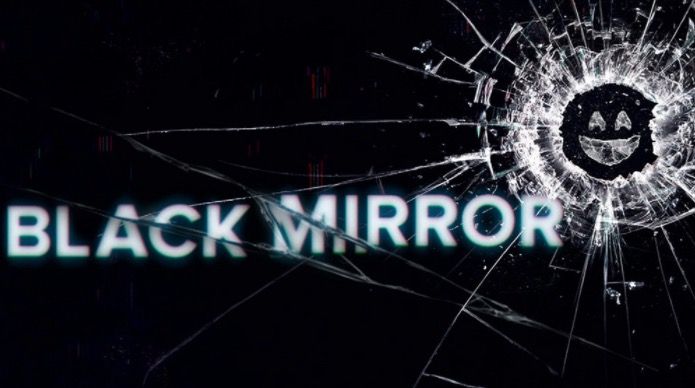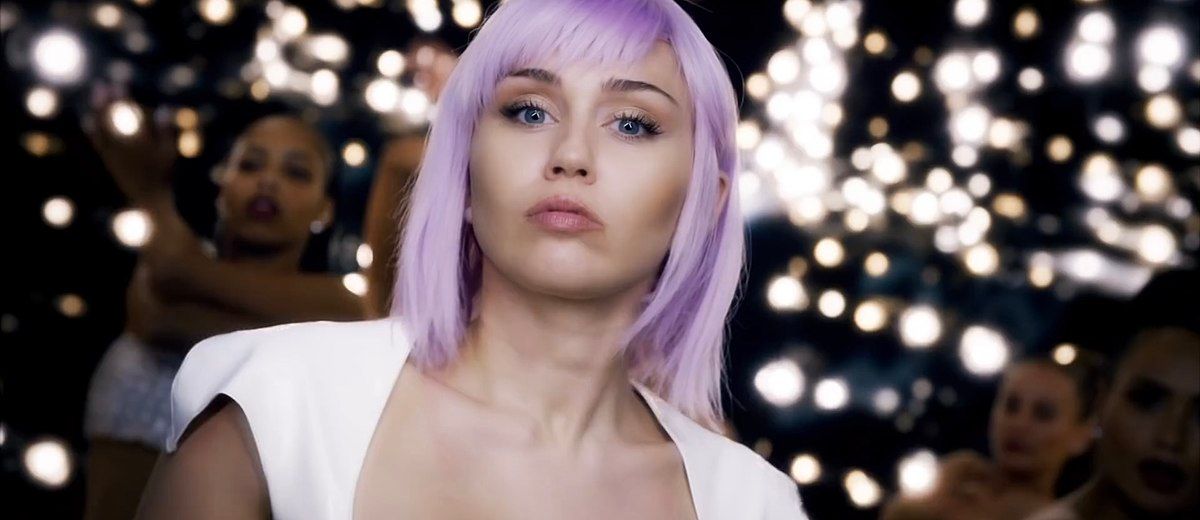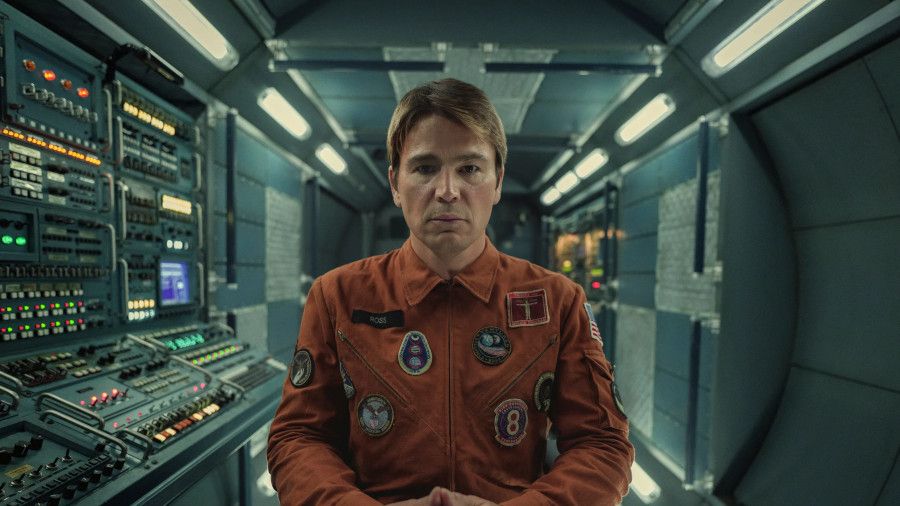Eyes in the "Black Mirror"
And that is what the Black Mirror is all about. We do not see our face in that black screen. We see what is left of our consciousness.

Now hollow fires burn out to black,
And lights are guttering low:
Square your shoulders, lift your pack,
And leave your friends and go …
A. E. Housman
When turned off, the screen of a cell phone, a computer, or any other device with a display is black. The black screen is what is left when the technology is turned off. We are left alone in the void that our senses fall into when we stop using it. Black is what remains when the light of reason goes out. Black is the all-too-intrusive technological progress that is swallowing up the colors of the human condition. Black is the abyss of Friedrich Nietzsche, when he wrote: “If you look into an abyss for a long time, the abyss will also look into you.” The blackness of devices is a Black Mirror.
Bad Tech or Good Tech?
Technology is not black, it is colorful, it is useful, it is almost indispensable today. But what it leaves when it goes out, if we do not know how to deal with its presence in our lives, is a vast desert of black ash. It is like after the eruption of a volcano. The screen in which we mirror ourselves is our reflection, our face, our distorted and shiny reality. These are the premises of the TV series Black Mirror, the creative brainchild of Charlie Brooker (writer, journalist, cartoonist and presenter), produced by Zeppetron for Endemol, the world's largest independent company.
“In the past decade, technology has transformed almost every aspect of our lives before we had time to stop and question it. In every home, on every desk, in every hand, there is a plasma screen, a monitor, a smartphone – a black mirror of our existence in the 21st century. Our grip on reality is shifting. We worship at the altars of Google and Apple. Facebook's algorithms know us better than our parents. We have access to all the information in the world, but there is not enough brain space to absorb anything longer than a 140-character tweet.”
(C. Brooker)

About Black Mirror
Each season of Black Mirror consists of 60-minute, self-contained episodes that explore themes and issues affecting the rule of media and technology. The success of the show may be due to the fact that people are interested in understanding how media can influence people's behavior, ideas, thoughts, and lives. The genre is not just science fiction; it is much more. The episodes are all different in setting, characters, shots, tone, mood. A succession of scenarios and stories dominated by technology that can become cruel because it is used without awareness or because it is imposed with cynicism. But if on the surface you notice the tones of science fiction, the surreal, almost cyberpunk, irony and satire (not always easy to grasp), the real is more subtle: what happens when technology is used not to build utility and well-being, but to build governable enclosures?
“How did it happen? How did man, at the very height of his victory over nature, become the prisoner of his own creation and in serious danger of destroying himself? In the search for scientific truth, man came across knowledge that he could use for the domination of nature. He had tremendous success. But in the one sided emphasis on technique and material consumption, man lost touch with himself, with life. Having lost religious faith and the humanistic values bound up with it, he concentrated on technical and material values and lost the capacity for deep emotional experiences, for the joy and sadness that accompany them. The machine he built became so powerful that it developed its own program, which now determines man’s own thinking”.
Fromm (1969)
How it works
Suspicion comes slowly in Black Mirror, like when you look in the mirror and notice a white hair that wasn't there two months ago. And you take a leap because time is passing and you only notice it now, only in that damn reflection. This is how the episodes of this series work: The collapse of consciousness is realized slowly, the colors fade slowly, softly. The dystopias told are even acceptable at first. Each version of the future proposed is realistic; it is the realization of worlds in which technology and the virtual have replaced reality. Human consciousness has collapsed, and the gaze in the mirror has turned shiny black. Human thought has exceeded its limits and has become virtual.

Why does technology change us? In 1969, Marshall McLuhan described language as an extension (outering) of our thinking:
“It is the extension of man in speech that enables the intellect to detach itself from the vastly wider reality. Without language … human intelligence would have remained totally involved in the objects of its attention.”
The “innering” effect
Media and technology change our language (also understood as communication) and this has an “innering” effect, that is, we begin to perceive reality differently in relation to our need to experience more and more intensely something that is in our heads and that technology itself has created, making the virtual real. And so on, in an endless loop. McLuan said: “Any form of media falsification or retouching of reality produces a change in our sensory perception that alters the way we think and act.” Our devices are designed to change us from the inside out. They are capable of changing us, making us dependent on artificial components that are often ambivalent. When our relationship to reality changes because our sensory relationship changes, we change. If the media become an extension of our central nervous system, that is, an artificial extension of our senses, then our thinking will also lose some of its humanity. It will “artificialized” or dehumanized.
What the Black Mirror is all about
To echo the themes of Gibsonian cyberpunk, all the technology we use functions as a prosthesis, interacting with our minds and bodies, reshaping our perception of the world and creating an extension of the senses. The paradigm of modern technology is based entirely on the belief that what is artificial can solve any problem and satisfy any need. No matter what the origin of man's desires is, he knows that sooner or later he will be satisfied with his desires, as it is only necessary to wait for the progress of technological advancement. And that is what the Black Mirror is all about. We do not see our face in that black screen. We see what is left of our consciousness.
Black Mirror List of Episodes
Season 1
- E1 The National Anthem
- E2 Fifteen Million Merits
- E3 The Entire History of You
Season 2
- E4 Be Right Back
- E5 White Bear
- E6 The Waldo Moment
Season 3
- E7 Nosedive
- E8 Playtest
- E9 Shut Up and Dance
- E10 San Junipero
- E11 Men Against Fire
- E12 Hated in the Nation
Season 4
- E13 USS Callister
- E14 Arkangel
- E15 Crocodile
- E16 Hang the DJ
- E17 Metalhead
- E18 Black Museum
Season 5
- E19 Striking Vipers
- E20 Smithereens
- E21 Rachel, Jack and Ashley, Too
Season 6
- E22 Joan Is Awful
- E23 Loch Henry
- E24 Beyond the Sea
- E25 Mazey Day
- E26 Demon 79
Specials
- S02 White Christmas
- S04 Bandersnatch
